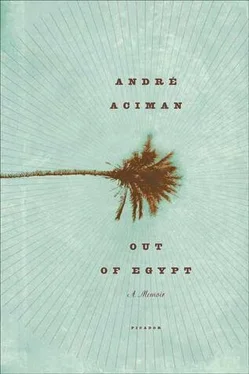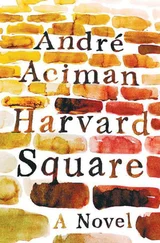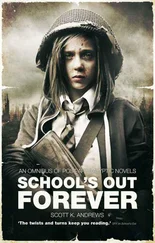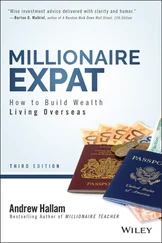By two o’clock in the morning, we had written five sentences. Everybody had gone to bed already. Someone had dimmed the lamp in the hallway and turned off all the lights in the house. Father offered me a cigarette. He drew the curtains that had been shut so that no one outside might see what we were doing and flung open the window. Then, after letting a spring breeze heave through the dining room, he stood by the window, facing the night, his chin propped on the palms of his hands, with his elbows resting on the window ledge. “It’s a small city, but I hate to lose her,” he finally said. “Where else can you see the stars like this?” Then, after a few seconds of silence, “Are you ready for tomorrow?” I nodded. I looked at his face and thought to myself: They might torture him, and I may never see him again. I forced myself to believe it — maybe that would bring him good luck.
“Good night, then.” “Good night,” I said. I asked him if he was going to go to bed as well. “No, not yet. You go. I’ll sit here and think awhile.” He had said the same thing years before, when we visited his father’s tomb and, silently, he had propped his chin on one hand, his elbow resting on the large marble slab. I had been asking him questions about the cemetery, about death, about what the dead did when we were not thinking of them. Patiently, he had answered each one, saying death was like a quiet sleep, but very long, with long, peaceful dreams. When I began to feel restless and asked whether we could go, he answered, “No, not yet. I’ll stand here and think awhile.” Before leaving, we both leaned down and kissed the slab.
The next morning, I awoke at six. My list of errands was long. First the travel agency, then the consulate, then the telegrams to everyone around the world, then the agent in charge of bribing all the customs people, then a few words with Signor Rosenthal, the jeweler whose brother-in-law lived in Geneva. “Don’t worry if he pretends not to understand you,” my father had said. After that, I was to see our lawyer and await further instructions.
My father had left the house at dawn, I was told. Mother had been put in charge of buying suitcases. My grandmother took a look at me and grumbled something about my clothes, especially those “long blue trousers with copper snaps all over them.” “What snaps?” I asked. “These,” she said, pointing to my blue jeans. I barely had time to gulp down her orange juice before rushing out of the house and hopping on the tram, headed downtown — something I had never done before, as the American School was in the opposite direction. Suddenly, I was a grown-up going to work, and the novelty thrilled me.
Alexandria on that spring weekday morning had its customary dappled sky. Brisk and brackish scents blew in from the coast, and the tumult of trade on the main thoroughfares spilled over into narrow side-lanes where throngs and stands and jostling trinket men cluttered the bazaars under awnings striped yellow and green. Then, as always at a certain moment, just before the sunlight began to pound the flagstones, things quieted down for a while, a cool breeze swept through the streets, and something like a distilled, airy light spread over the city, bright but without glare, light you could stare into.
The wait to renew the passports at the consulate was brief: the man at the counter knew my mother. As for the travel agent, he already seemed apprised of our plans. His question was: “Do you want to go to Naples or to Bari? From Bari you can go to Greece; from Naples to Marseilles.” The image of an abandoned Greek temple overlooking the Aegean popped into my head. “Naples,” I said, “but do not put the date yet.” “I understand,” he said discreetly. I told him that if he called a certain number, funds would be made available to him. In fact, I had the money in my pocket but had been instructed not to use it unless absolutely necessary.
The telegrams took forever. The telegraph building was old, dark, and dirty, a remnant of colonial grandeur fading into a wizened piece of masonry. The clerk at the booth complained that there were too many telegrams going to too many countries on too many continents. He eyed me suspiciously and told me to go away. I insisted. He threatened to hit me. I mustered the courage and told the clerk we were friends of So-and-so, whose name was in the news. Immediately he extended that inimitably unctuous grace that passes for deference in the Middle East.
By half past ten I was indeed proud of myself. One more errand was left, and then Signor Rosenthal. Franco Molkho, the agent in charge of bribing customs officials, was himself a notorious crook who took advantage of everyone precisely by protesting that he was not cunning enough to do so. “I’m always up front about what I do, madame.” He was rude and gruff, and if he saw something in your home that struck his fancy, he would grab and pocket it in front of you. If you took it away from him and placed it back where it belonged — which is what my mother did — then he would steal it later at the customs shed, again before your very eyes. Franco Molkho lived in a kind of disemboweled garage, with a makeshift cot, a tattered sink, and a litter of grimy gear boxes strewn about the floor. He wanted to negotiate. I did not know how to negotiate. I told him my father’s instructions. “You Jews,” he snickered, “it’s impossible to beat you at this game.” I blushed. Once outside, I wanted to spit out the tea he had offered me.
Still, I thought of myself as the rescuer of my entire family. Intricate scenarios raced through my mind, scenarios in which I pounded the desk of the chief of police and threatened all sorts of abominable reprisals unless my father was released instantly. “Instantly! Now! Immediately!” I yelled, slapping my palm on the inspector’s desk. According to Aunt Elsa, the more you treated such people like your servants, the more they behaved accordingly. “And bring me a glass of water, I’m hot.” I was busily scheming all sorts of arcane missions when I heard someone call my name. It was my father.
He was returning from the barber and was ambling at a leisurely pace, headed for his favorite café near the stock exchange building. “Why aren’t you in jail?” I asked, scarcely concealing my disappointment. “Jail!” he exclaimed, as if to say, “Whoever gave you such a silly notion?” “All they wanted was to ask me a few questions. Denunciations, always these false denunciations. Did you do everything I told you?” “All except Signor Rosenthal.” “Very good. Leave the rest to me. By the way, did Molkho agree?” I told him he did. “Wonderful.” Then he remembered. “Do you have the money?” “Yes.” “Come, then. I’ll buy you coffee. You do drink coffee, don’t you? Remember to give it to me under the table.” A young woman passed in front of us and father turned. “See? Those are what I call perfect ankles.”
At the café, my father introduced me to everyone. They were all businessmen, bankers, and industrialists who would meet at around eleven in the morning. All of them had either lost everything they owned or were about to. “He’s even read all of Plutarch’s Lives ,” boasted my father. “Wonderful,” said one of them, who, by his accent, was Greek. “Then surely you remember Themistocles.” “Of course he does,” said my father, seeing I was blushing. “Let me explain to you, then, how Themistocles won the battle at Salamis, because, that, my dear, they won’t teach you in school.” Monsieur Panos took out a Parker pen and proceeded to draw naval formations on the corner of his newspaper. “And do you know who taught me all this?” he asked, with a self-satisfied glint flickering in his glazed eyes, his hand pawing my hair all the while. “Do you know who? Me,” he said, “I did, all by myself. Because I wanted to be an admiral in the Greek navy. Then I discovered there was no Greek navy, so I joined the Red Cross at Alamein.”
Читать дальше












